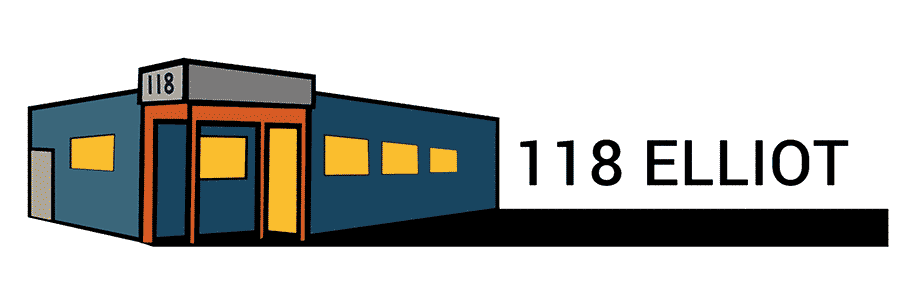Reflections of a mental health worker
Tina K. Olsen / prose and art
When I worked at the South Beach Psychiatric Center in Staten Island, a young man was admitted to the forensic unit for murdering and dismembering his father. A wave of fear and horror spread quickly throughout the hospital. I found myself caught in that tide, wanting to shun him.
My reaction forced me to face the truth: I too had wanted to kill my violent father. I suffered greatly from those feelings, afraid at times to go near a knife for fear of what I might do to prevent him from hurting me or my siblings. I had nobody to talk to. The feelings knotted up inside me for many years. I came to the conclusion that it was really only the capricious hand of fortune that separated me from him.
When I realized this, I was able to work with him. I learned that this young man throughout childhood had watched his father horribly abuse his mother. He had vowed that one day he would kill his father and unfortunately, that day came.
We bonded over writing and sharing songs about fear and hatred. We became quite close. He grew saner over time, but refused to leave the locked wards; He felt he couldn’t trust himself. Nevertheless, he was one of the most caring people toward the other patients. It often happened that way, patients helping other patients, patients helping those on staff.
All staff knew that to keep sane, we had to hold in our hearts the reality that going crazy could happen to any of us. Being human was the common denominator and art was a way to bridge the gap.
* * *
I arrived at South Beach in 1988 just after earning my Master of Social Work. I stayed for 21 years. Although it was a relief to end the daily two hour commute from Staten Island to my home in Red Hook, Brooklyn, I must say that working at South Beach was the best and worst experience of my life.
South Beach taught me how each of us is equally valuable and equally vulnerable, and how creativity and artistic expression are the life-blood of mental health.
I was an artist/ social worker in the rehab department working therapeutically with music, painting, movement and writing. Art preserved my sanity as I developed creative practices that helped patients express themselves. I stand on these practices today as I continue to paint, make music and write through my work and collaborations at 118 Elliot.
When I first arrived at South Beach, the pervading sense of imprisoned psychic suffering overwhelmed me. It didn’t help that I was in the middle of a divorce and carrying an enormous burden myself. Over the course of my work there, my mother, father and brother all died.
In the locked wards, we found great solace together when we sang “Can the Circle be Unbroken.” Singing helped all of us to acknowledge the pain we shared and work through the universal trauma of death and separation, buried grief and longing.
I recall one time a patient committed suicide. We gathered together to sing “Amazing Grace.” You could feel the communal connection grow as, one by one, people drifted out from their rooms to join the widening circle.
In that prison-like place where people have nothing, they sang their hearts out to “This land is your land – This land is my land!” The desire to connect, to feel a stake in something shared, tells a story that transcends staff and client, killer and one who narrowly escaped that burning rage.
At Christmas we went around and sang carols. “Rudolf the Red nosed Reindeer” was my favorite. Patients were grateful to be singing together songs they knew. They would get gifts of a hat or gloves or nail clippers and then have a turkey dinner. They sat together in quiet appreciation, as if they had never eaten together before. It was like this every year and was very humbling for the staff. Some of us chose to spend the holidays on the units with the patients.
Some of the finest people I have ever met worked at South Beach. We worked there mostly because many in our families suffered from mental illness. We wanted to understand and help. We learned lessons everyday.
One time, I got attacked. I planned ahead of time to sing “The Truth Shall Make you Free.” One of the patients was growing agitated as I led the song, but I wasn’t paying close enough attention. She came after me, grabbing my hair. Other staff rushed in to help. I learned that this attacker had been so brutalized that ‘truth’ was unbearable to her.
I never again went to the units with a plan. I waited to see what people wanted to express. The truth arises from within us. It cannot come on demand. It comes naturally through open presence – alone or with others. It comes through creative expression in any medium and brings with it consciousness and sanity.
# # #



